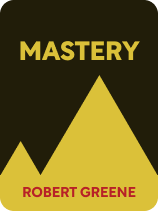

This article is an excerpt from the Shortform book guide to "Mastery" by Robert Greene. Shortform has the world's best summaries and analyses of books you should be reading.
Like this article? Sign up for a free trial here.
What does the path to mastery look like? Should you expect a steady upward progression?
The truth is, says George Leonard, most of the mastery journey does not feel like success. The majority of the path consists of plateaus, and it’s only now and then that you experience a leap forward. He urges you not to get discouraged and to embrace the flat zones as an important part of the process.
Read on to learn more about mastery plateaus and how to embrace these stages.
Mastery Plateaus
Mastery is a path. The main features of that path, according to Leonard, are its recurrent plateaus or flat zones. Put another way, he contends that, when you develop a new skill, your growth looks not like a continual upward trend but rather like a series of long, flat periods of hard work with few visible results. Every once in a while, these flat zones give way to spurts of growth—intermittent moments when everything you’ve been training for comes together, and you finally achieve competence in the technique or move you’ve been learning.
These mastery plateaus are the main reason many people fall off the path of mastery. Leonard says that most, if not all of us, want to be good at something. However, we feel daunted by how long it takes to achieve real skillfulness. When we hear that it may be years before we can properly pitch a ball or perform on the piano, we lose all motivation. We don’t want to struggle through the long days of grinding away at mundane, minute techniques with little to show for it.
(Shortform note: Other experts agree that plateaus are a natural part of learning, but some take a different approach to them than Leonard—suggesting strategies to overcome them rather than embrace them. From this perspective, we plateau for a few different reasons and each of those has a solution. For instance, you might plateau because your practice gets too routine. To overcome this, shake things up by changing how, when, or what you practice. Efficient growth, then, involves adapting to your circumstances and not accepting it when things slow down.)
The Plateau Is the Path
Falling off of the mastery plateau, Leonard says, is a tragedy, because we’re all born with the potential to be masters. Human beings are learning animals: We’re wired to develop skills that we aren’t born with, a capacity that no other animal has. We can learn to write grand symphonies, hike the highest mountains, create wonderful meals, or run faster than anyone ever has. We’re all born with the potential to master some skill, be it music, athletics, relationships, or business. Wasting that potential is a terrible loss.
To avoid that mistake, embrace the plateaus you’ll encounter along your path of mastery. Since most of the path consists of these flat periods, we need to sink deep into them—deep into the steady, diligent practice of fundamentals, repeating the technique dozens or hundreds of times. In other words, Leonard says, we must learn to love practice for its own sake; to recognize that learning happens all along the way, even if the motivating results only appear to happen every once in a while.
(Shortform note: In The Obstacle Is the Way, Ryan Holiday offers a complementary perspective from the tradition of Stoicism. He explains that the Stoics trained themselves to reframe perceived problems as opportunities. This involves seeing that no event is inherently good or bad and that we can choose to interpret them either way. So, while you might instinctively view the plateaus in your life as problems (as bad), you could instead reinterpret them as opportunities for growth (as good). This will then give you the strength and focus to persist through your mastery plateaus.)
Put another way, Leonard argues that to become a master is to learn to do something simply because you love it rather than for any external rewards or motivations. When you have that desire to do something out of a simple, quiet joy for the activity itself, you know you’re on the path of mastery.
(Shortform note: In a related vein, psychologists distinguish between two types of motivation: extrinsic and intrinsic. Extrinsic motivations come when you want to earn some tangible reward, like a promotion at work, or avoid a penalty, like getting fired. This isn’t the sort of motivation Leonard speaks to above; rather, he seems to suggest that masters are intrinsically motivated to pursue their skills. This means that the behavior is itself the reward—you enjoy it to the extent that it’s just as rewarding as getting some external benefit.)
Instant Gratification Distracts From Mastery
If we’re all born with the capacity to be masters, why are the plateaus such a challenge? Leonard says that most of us fall off during plateaus because they reveal our real motivations: that we just want to look good, impress our friends, or have some fun. For Leonard, most of us aren’t serious enough to pursue real mastery.
According to Leonard, this is because modern culture conditions us to want instant gratification above all else. Advertising, television, and other sources of easy dopamine have taught us that the exciting, fast, and easy solutions are the best way to solve problems. This attitude has leached into all areas of our lives, and many people have lost the willpower to do anything that requires real, hard work.
Ultimately, Leonard says, this lifestyle leads nowhere good. When the pace of life is characterized by one high point after another, the end result is a dramatic fall. It’s impossible to keep the climaxes coming forever. Like a drug addiction, each successive hit feels worse than the previous, and you’ll eventually be fragile, impatient, irritable, and unable to focus—unable to live with presence, patience, and diligence, as a master does.
| Why Are We Drawn to Instant Gratification? While Leonard critiques America’s impulsive, indulgent society, he doesn’t offer much in the way of explaining or understanding why things are this way. In Dopamine Nation, however, Anna Lembke explains that we’re impulsive because we evolved to be that way. That is, our brains evolved to survive during times of scarcity when pleasurable things—like food and sex—were hard to come by. But today they’re abundant, thanks to industrialization, which made food, sugar, fat, and other pleasurable goods very easy to obtain. The last piece of the puzzle is leisure: We don’t have to spend all day gathering food or water to survive, and can instead binge Netflix or video games on a fairly regular basis. Put together, these conditions make impulsive, instant gratification-focused behavior easy and almost unavoidable. Lembke agrees with Leonard that this is a problem, arguing that overindulgence has led to a decrease in happiness in developed nations. |

———End of Preview———
Like what you just read? Read the rest of the world's best book summary and analysis of Robert Greene's "Mastery" at Shortform.
Here's what you'll find in our full Mastery summary:
- How to walk the path of the master by being disciplined in your skill or art
- Why mastery isn't an end goal, but rather a continual process of learning
- Why the master's path is the only guaranteed way to live a fulfilling life






